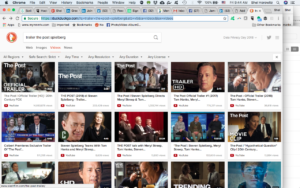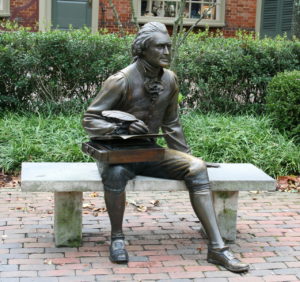“The Post”—Super-Relevant Reminder from 1971
“The Post” lives up to the hype. It takes a very cerebral story and builds it into high drama, spurred by strong performances from Meryl Streep as publisher Katharine Graham) and Tom Hanks (editor Ben Bradlee).
The overall message, about the power of the free press, and the need for the press to defend its Fist Amendment freedom, despite the whims of a paranoid and dictatorial president (Nixon, in this case—a different example today).
It tracks Daniel Ellsberg’s smuggling out massive quantities of classified documents from the Rand Corporation, where he worked, and releasing them first to the New York Times, and then to the Washington Post. The movie also dramatizes the frenetic effort throughout the newsroom to absorb the information and turn it into stories on very tight deadlines, not even knowing if the presses would run, while the Times suffered under the first pre-publication censorship of journalism in the history of the United States. Known as “The Pentagon Papers,” these documents proved that US high officials knew by the early 1960s that the war was unwinnable, and that presidents Eisenhower, Kennedy, Johnson, and Nixon all lied to the American people about it.
And it covers the legal battle: the government’s attempt to shut them down and the papers going all the way to the Supreme Court to secure their rights. The timing of these events happened to threaten The Post’s long-awaited IPO, which adds to the drama and the sense of what’s at stake for Graham, Bradlee, and their journalists.
BTW, just as the movie gives lessons on how to survive a paranoid, media-hating president facing serious doubts about his honesty, the Nixon link above focuses on some very interesting parallels between his presidency and that of the current occupant of 1600 Pennsylvania Avenue, Washington, DC. However, let’s remember the differences. Nixon had a very impressive record on the environment—I describe him as the president with America’s second-most environmentalist track record (behind Obama but ahead of both Jimmy Carter and Teddy Roosevelt) also, despite the Vietnam war, did much to break down the barriers between the US and both the Soviet Union and China.

